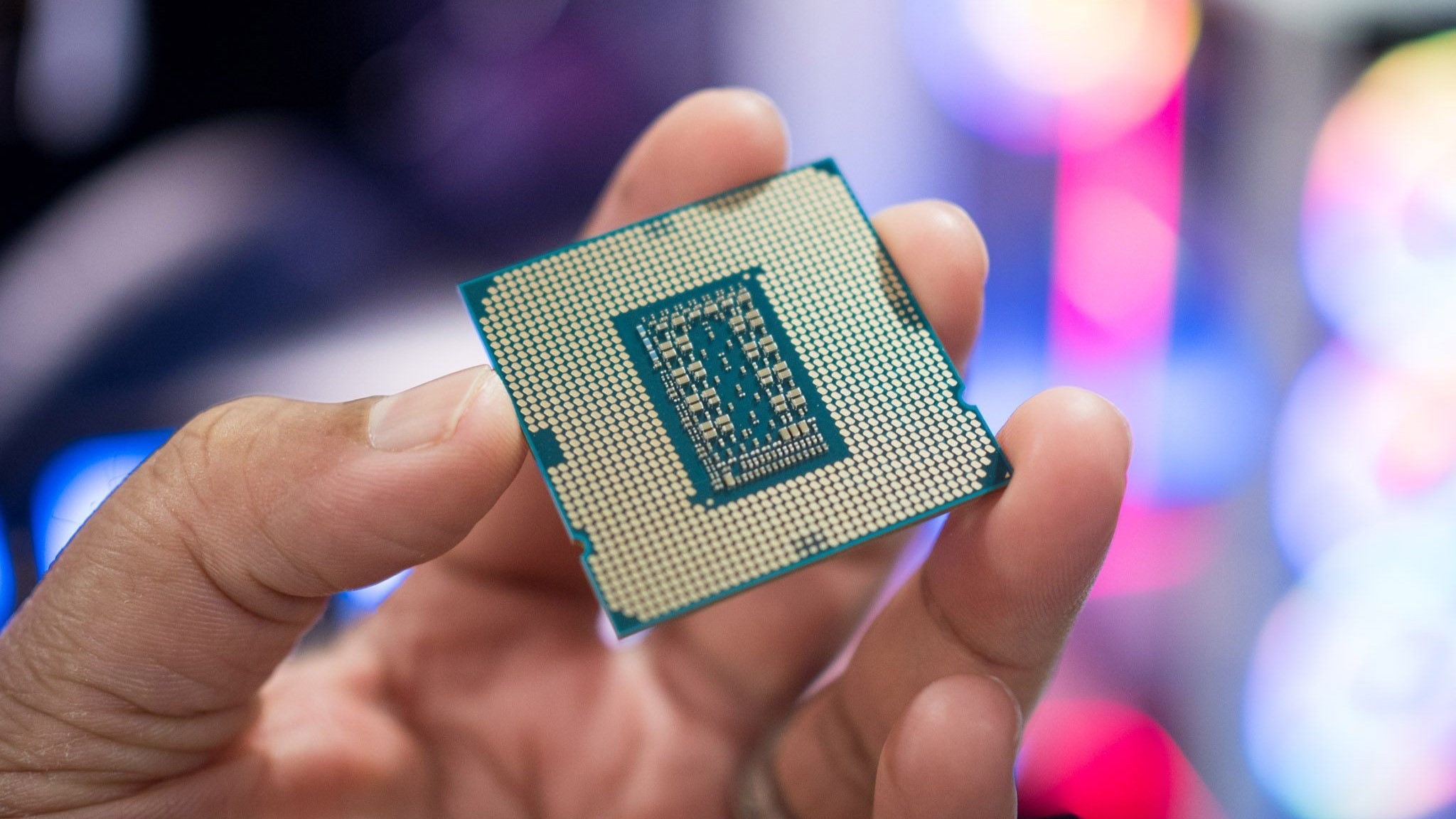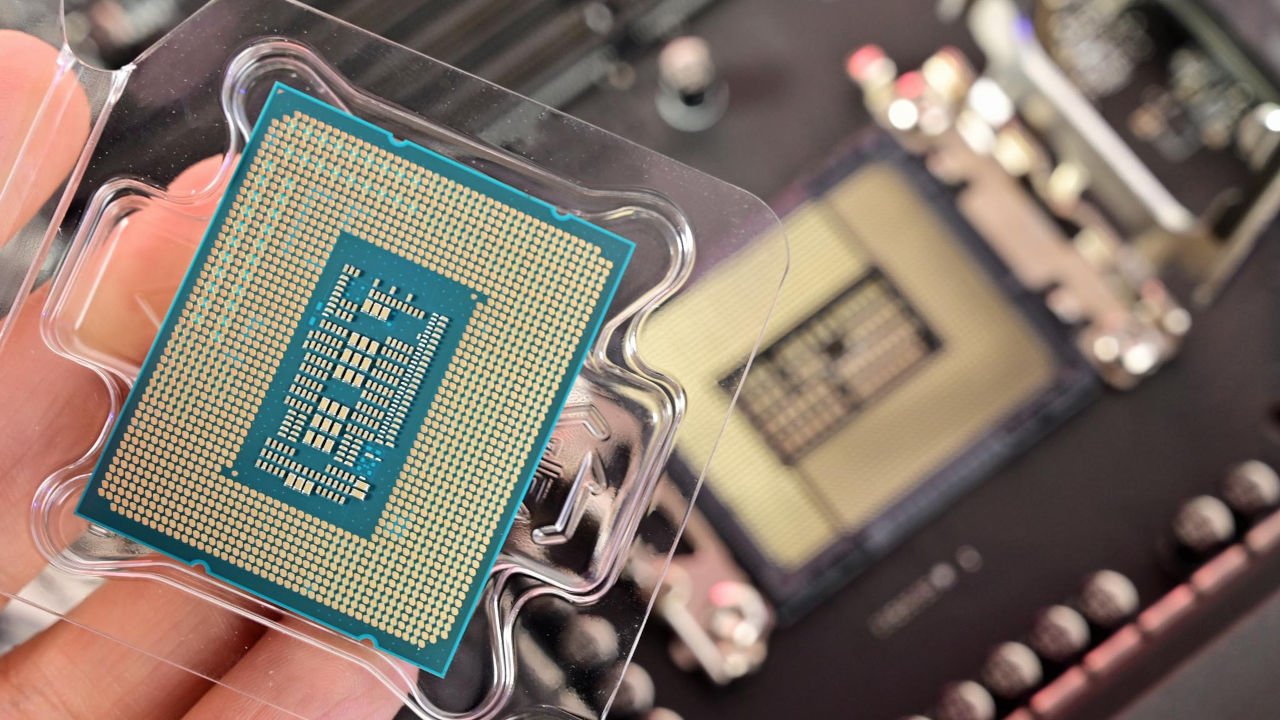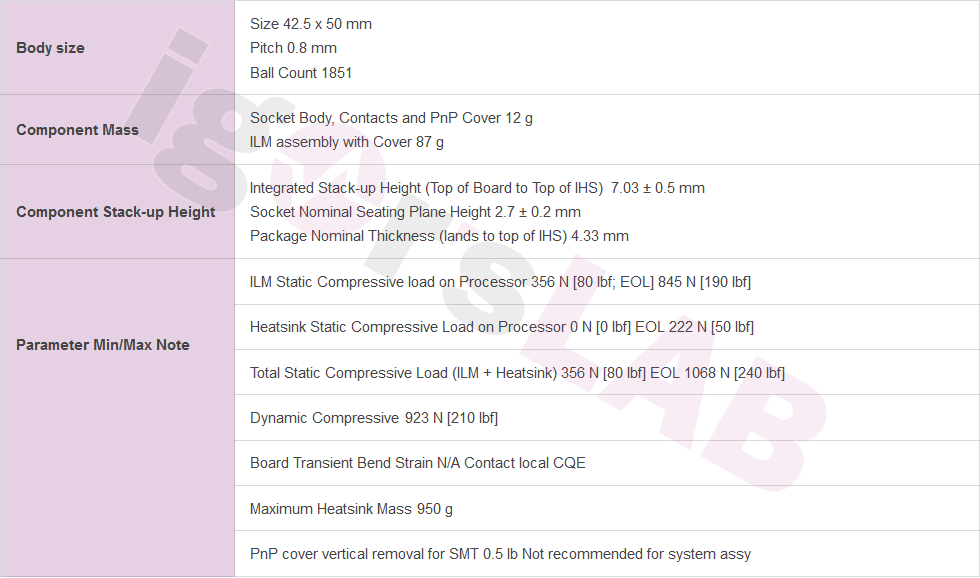Intel Arrow Lake LGA1851 socket leak shows the new CPU is catching up to AMD AM5
It sports 1,851 pins and will reportedly have a PCIe 5.0 x4 interface.

All the latest news, reviews, and guides for Windows and Xbox diehards.
You are now subscribed
Your newsletter sign-up was successful
What you need to know
- The performance projections for Intel's upcoming 15th Gen Arrow Lake processors recently leaked.
- Following that leak, information on the unreleased LGA1851 socket for Arrow Lake has also leaked.
- Arrow Lake will seemingly require a new motherboard to interface with.
- This upcoming CPU likely won't release until sometime in 2024 and is subject to change.
Recently, internal performance projection charts for Intel's upcoming 15th Gen Arrow Lake processors leaked giving us a clue that AMD might need to start worrying about Arrow Lake's performance increases. However, now additional news has been leaked by German news outlet Igor's Lab, providing details specifically about the upcoming Arrow Lake processor's socket — the LGA1851. For those wondering, a socket is basically what connects a CPU to the motherboard allowing the processor to be swapped out in a computer rather than being a permanent motherboard fixture.

- Best Intel CPUs
- Best AMD CPUs
- Best AMD GPUs
- Best NVIDIA GPUs
As indicated by the name, the LGA1851 socket features 1,851 pins. That is 151 more pins than the current LGA1700 socket found in Raptor Lake chipsets which houses, you guessed it, 1,700 pins. The more pins a processor has, the more data or power can be transferred between it and the motherboard. In other words, more pins equals a more powerful CPU. Making this change brings Intel Arrow Lake a lot closer to the AMD AM5, which once more gives team red reason to take note of Intel's unreleased processor.
As explained by Igor's Lab, this pin increase works to improve SSD connectivity since the current LGA1700 is somewhat stunted only offering a PCIe 4.0 ×4 interface which makes it so "PCIe 5.0 SSDs have to use eight lanes that are actually intended for graphics cards." The new LGA1851 will improve things by providing a dedicated PCIe 5.0 ×4 interface for the CPU. In short, this will provide full native support for the fastest SSDs while providing a x16 slot for the GPU.
Despite these changes, diagrams show that the LGA1851 and LGA1700 sockets have the same 45 x 37.55mm dimensions and look the same outwardly, even down to the socket retention system. This means the upcoming and current processors are installed the same way.
However, making these upgrades makes it so that the maximum dynamic pressure for the new socket goes up by 89% from its predecessor (from 489.5N to 923N). As Igor Labs goes on to point out, this change found in the LGA1851 will likely require new cooler mounting systems as the current ones being used don't offer enough contact pressure to function optimally.
| Header Cell - Column 0 | LGA1700 | LGA1851 |
|---|---|---|
| Company | Intel | Intel |
| Manufacturer | Lotes | (Unclear) |
| Type | LGA-ZIF | LGA-ZIF |
| Contacts | 1,700 | 1,851 |
| FSB protocol | PCI Express | PCI Express |
| Chip form factors | Flip-chip | Flip-chip |
| Processors | Alder Lake | Raptor Lake | Arrow Lake | Meteor Lake | Lunar Lake |
| Memory Support | DDR4 | DDR5 | DDR5 |
It's worth noting that it was originally believed that the LGA1851 socket was intended for both Intel's Meteor Lake and Arrow Lake processors, however, it looks like the former might no longer be intended for desktop use. At any rate, it seems likely that upgrading to Arrow Lake when the new CPUs launch will require users to upgrade their motherboards to ones with DDR5 memory, which could be costly to current DDR4 owners.
Keep in mind that the Arrow Lake CPU and the LGA1851 socket that houses it aren't planned to release until sometime in 2024. As such, things are subject to change between the time of this leak and the released product.
All the latest news, reviews, and guides for Windows and Xbox diehards.

Self-professed gaming geek Rebecca Spear is one of Windows Central's editors and reviewers with a focus on gaming handhelds, mini PCs, PC gaming, and laptops. When she isn't checking out the latest games on Xbox Game Pass, PC, ROG Ally, or Steam Deck; she can be found digital drawing with a Wacom tablet. She's written thousands of articles with everything from editorials, reviews, previews, features, previews, and hardware reviews over the last few years. If you need information about anything gaming-related, her articles can help you out. She also loves testing game accessories and any new tech on the market. You can follow her @rrspear on X (formerly Twitter).

